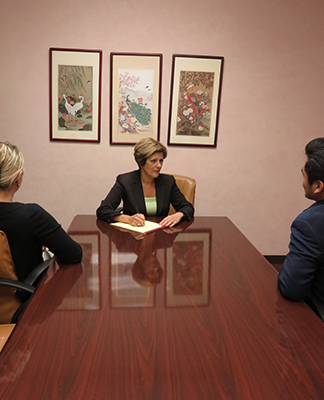Many couples are choosing mediation as an alternative to litigating over property, children, custody, parenting time and support issues in a divorce. Why choose mediation? How does it differ from the process of litigated divorce or dissolution of a domestic partnership?
Mediation is the non-adversarial and confidential process of reaching a mutually acceptable agreement through the intervention of a trained, neutral third party. All issues can be mediated, including division of assets and debts, determination of alimony and/or child support, legal custody of the children, schedules for parenting time, and even custody of the family pet(s). The end product of family law mediation is a written “Memorandum of Understanding” that can be signed by both parties. Mediated agreements are enforceable in a court of law and they are used as the basis for a comprehensive, written Settlement Agreement
Parties often find that mediation is less confrontational than litigation. They meet each other in a room with the mediator, and present their ideas to each other face to face. In litigation, they communicate through their attorneys, creating another layer that can lead to misunderstandings or posturing. Mediation is non-adversarial, meaning that the goal of mediation is an agreement; in litigation, the goal is winning the argument. Generally speaking, mediation is less costly than litigation and less time consuming.
The greatest advantage to mediation is that the parties control the agreement. Nobody can be forced into anything he/she finds unacceptable. In a contested family law case that is tried to conclusion, the judge will dictate the outcome. Often, neither party is happy with the results. The remedy of appeal is limited after a trial; moreover, the parties’ assets may be depleted after months or years of litigation.
Once the agreement is reached, one or both parties can petition the court for an uncontested divorce, in which the agreement will be incorporated into the final judgment of divorce.
Family law mediators must receive training approved by the Supreme Court. An approved and trained family law mediator like Gina Calogero can help a couple identify the issues in their case, understand each other’s position, explore creative solutions and facilitate compromise. Mediation is helpful in any family law situation, whether the parties are married or not.




